November 17, 2014 •
NYC Campaign Finance Board Proposes Rules on Contributions by Text Message
The New York City Campaign Finance Board has proposed rules regulating political contributions by text message. The rules set forth the eligibility requirements for public funds matching of text message contributions, the process of record keeping requirements for such contributions, […]
 The New York City Campaign Finance Board has proposed rules regulating political contributions by text message. The rules set forth the eligibility requirements for public funds matching of text message contributions, the process of record keeping requirements for such contributions, and requirements of contributors to certify their identities when making text message contributions.
The New York City Campaign Finance Board has proposed rules regulating political contributions by text message. The rules set forth the eligibility requirements for public funds matching of text message contributions, the process of record keeping requirements for such contributions, and requirements of contributors to certify their identities when making text message contributions.
The rules are open for public comment until November 20, 2014. A public hearing is scheduled for Monday, November 24, 2014 at 10:00 a.m.
November 17, 2014 •
Akron City Council to Consider Raising Campaign Contribution Limits
The Akron City Council is considering legislation to increase campaign finance limits for mayoral and council candidates. Limits for mayor and at-large council candidates would increase to $750 and the limit for ward council candidates would increase to $500. The […]
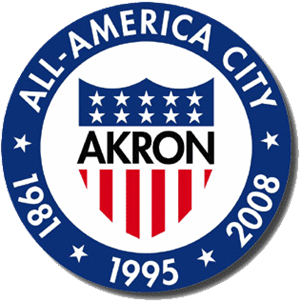 The Akron City Council is considering legislation to increase campaign finance limits for mayoral and council candidates. Limits for mayor and at-large council candidates would increase to $750 and the limit for ward council candidates would increase to $500.
The Akron City Council is considering legislation to increase campaign finance limits for mayoral and council candidates. Limits for mayor and at-large council candidates would increase to $750 and the limit for ward council candidates would increase to $500.
The council is waiting to take action on the legislation until after public hearings have been held. Hearings will take place at the Rules Committee meeting and at the regular council meeting later today.
The 10 ward council seats, the three at-large council seats, and the mayoral seat will all be on the 2015 election ballot.
August 6, 2014 •
Quebec Develops Searchable Database for Election Law Violators
Lucie Fiset, the chief electoral officer of Quebec, plans to set up a searchable online registry for accused violators of the province’s election laws. The database is slated to be operational by March 2015. This initiative is part of Fiset’s […]

Lucie Fiset, the chief electoral officer of Quebec, plans to set up a searchable online registry for accused violators of the province’s election laws. The database is slated to be operational by March 2015. This initiative is part of Fiset’s broader strategic plan to promote transparency and tighten surveillance of political contributions and election spending.
Recently, the province has been examining links between public construction contracts, organized crime, and provincial and municipal political contributions after investigators testified about a political financing scheme involving straw men contributing to political parties using money from a third party, thus skirting contribution limits, residency requirements, and the ban on contributions from entities.
With the new database, the public and the media will be able to search or cross-reference charges against individuals, companies, organizations, and parties accused of violating election laws.
June 25, 2014 •
SEC Charges Firm with Pay-to-Play Violation
For the first time, the U.S. Securities and Exchange Commission (SEC) has charged a firm with violations of its pay-to-play rules. On June 20, the SEC charged TL Ventures Inc., a private equity firm, with receiving advisory fees from the […]
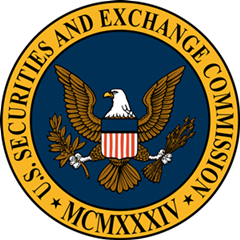 For the first time, the U.S. Securities and Exchange Commission (SEC) has charged a firm with violations of its pay-to-play rules. On June 20, the SEC charged TL Ventures Inc., a private equity firm, with receiving advisory fees from the pension funds of both Philadelphia and Pennsylvania after an associate of the firm had made campaign contributions in 2011 to the governor and a candidate for mayor.
For the first time, the U.S. Securities and Exchange Commission (SEC) has charged a firm with violations of its pay-to-play rules. On June 20, the SEC charged TL Ventures Inc., a private equity firm, with receiving advisory fees from the pension funds of both Philadelphia and Pennsylvania after an associate of the firm had made campaign contributions in 2011 to the governor and a candidate for mayor.
Federal regulations prohibit investment advisers and their covered associates who make contributions to officials of state and local government entities from providing compensatory advisory services for two years following a campaign contribution. TL Ventures Inc. has agreed to settle the charges by paying nearly $300,000.
June 19, 2014 •
Thursday News Roundup
Lobbying “Under Contract” in The Hill. “MPAA’s Michael O’Leary steps down – Big 12 hires a lobbying firm” by Byron Tau in Politico. Missouri: “Lobbyists’ gifts to Missouri lawmakers exceed $500,000” by Angela Mueller in the St. Louis Business Journal. […]
 Lobbying
Lobbying
“Under Contract” in The Hill.
“MPAA’s Michael O’Leary steps down – Big 12 hires a lobbying firm” by Byron Tau in Politico.
Missouri: “Lobbyists’ gifts to Missouri lawmakers exceed $500,000” by Angela Mueller in the St. Louis Business Journal.
Campaign Finance
“BitPay, CoinVox Team Up to Allow Politicians to Accept Bitcoin” by Eric Calouro in NewsBTC.
Delaware: “Campaign finance reform bills languish in legislature” by Jonathan Starkey in The News Journal.
Massachusetts: “Bill would increase PAC disclosures” by Frank Phillips in the Boston Globe.
New York: “Blame Game After Push to Revamp Campaign Financing Ends” by Mike Vilensky in The Wall Street Journal.
North Carolina: “N.C. election laws ‘stuck in pre-computer age’” by Jim Morrill in the Charlotte Observer.
Vermont: “Advocacy group turns sights to money in politics” by Neal P. Goswami in the Rutland Herald.
Ethics
“Prosecutor asks court: Reinstate DeLay convictions” by Juan A. Lozano (Associated Press) in the Houston Chronicle.
“Grand Jury Probes Capitol Knowledge & Stock Trading” by Kent Cooper in Roll Call.
Hawaii: “Ethics Commission Tells Lawmakers How They Should Spend Allowances” by Nathan Eagle in the Honolulu Civil Beat.
Elections
New York: “This is what happens when a campaign finance scholar runs for governor” by Max Ehrenfreund in The Washington Post.
Wisconsin: “Jon Erpenbach drops appeal in email open records case” in the Journal Sentinel.
State Legislatures
South Carolina: “SC House OKs $12,000 pay raise for lawmakers, overriding Gov. Haley’s veto” by Cassie Cope in The State.
The Maine Commission on Governmental Ethics and Election Practices will no longer enforce the yearly aggregate contribution limit applicable to individuals and entities contained in Maine Revised Statutes section 1015(3). In a policy statement issued June 4, 2014, the commission […]
 The Maine Commission on Governmental Ethics and Election Practices will no longer enforce the yearly aggregate contribution limit applicable to individuals and entities contained in Maine Revised Statutes section 1015(3). In a policy statement issued June 4, 2014, the commission cited recent U.S. Supreme Court decision McCutcheon v. FEC as authority for its determination.
The Maine Commission on Governmental Ethics and Election Practices will no longer enforce the yearly aggregate contribution limit applicable to individuals and entities contained in Maine Revised Statutes section 1015(3). In a policy statement issued June 4, 2014, the commission cited recent U.S. Supreme Court decision McCutcheon v. FEC as authority for its determination.
The commission stated it will no longer enforce the $25,000 aggregate limit “unless and until it receives further guidance from the Maine Legislature or a court of competent jurisdiction.”
The policy statement also noted the commission’s intention to study the issues and perhaps propose legislation during the next state legislative session.
May 28, 2014 •
Wisconsin GAB Drafts New Lobbyist Contribution Guidelines
The Government Accountability Board (GAB) is seeking comment on new guidelines for lobbyist campaign contributions. Following changes to campaign fundraising rules pursuant to 2013 Wisconsin Act 153, GAB concluded a lobbyist may deliver or convey a campaign contribution on behalf […]
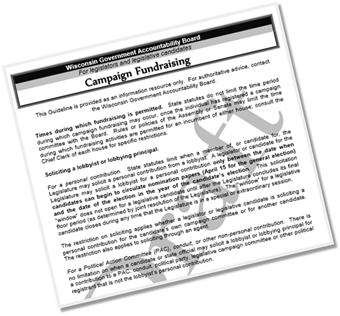 The Government Accountability Board (GAB) is seeking comment on new guidelines for lobbyist campaign contributions. Following changes to campaign fundraising rules pursuant to 2013 Wisconsin Act 153, GAB concluded a lobbyist may deliver or convey a campaign contribution on behalf of a political action committee, conduit, or other person to a candidate for any office at any time.
The Government Accountability Board (GAB) is seeking comment on new guidelines for lobbyist campaign contributions. Following changes to campaign fundraising rules pursuant to 2013 Wisconsin Act 153, GAB concluded a lobbyist may deliver or convey a campaign contribution on behalf of a political action committee, conduit, or other person to a candidate for any office at any time.
The draft changes to GAB guidelines 1249 and 1250 are available here. Comments should be sent to Division Administrator Jonathan Becker at jonathan.becker@wi.gov or (608) 267-0647 by June 2, 2014.
The Government Accountability Board (GAB) has concluded a recently signed law allowing lobbyists to personally give campaign contributions a couple of months earlier also prohibits them from providing such contributions on behalf of clients at any time. Whether by design […]

The Government Accountability Board (GAB) has concluded a recently signed law allowing lobbyists to personally give campaign contributions a couple of months earlier also prohibits them from providing such contributions on behalf of clients at any time.
Whether by design or by drafting error, a late amendment to Senate Bill 655 removed the provision to allow a lobbyist to deliver a client’s contribution at any time.
GAB will review the matter at its meeting on May 21, 2014. The Legislature would have to reconvene to fix a drafting error.
May 1, 2014 •
Hawaii Senate Bill 2120 Signed into Law
Hawaii Gov. Neil Abercrombie signed Senate Bill 2120 into law April 25. Immediately effective upon executive approval, the legislation corrects a mistaken reference to a section of the Hawaii Revised Code meant to exempt contributions from a candidate’s immediate family […]

Hawaii Gov. Neil Abercrombie signed Senate Bill 2120 into law April 25. Immediately effective upon executive approval, the legislation corrects a mistaken reference to a section of the Hawaii Revised Code meant to exempt contributions from a candidate’s immediate family from general statutory contribution limits.
Contributions from immediate family are now limited in the aggregate to $50,000 in any election period, provided the aggregate amount of loans and contributions received from said family does not exceed $50,000 during an election period.
The Senate passed a bill to widen the ability of lobbyists to provide campaign contributions. Senate Bill 655 allows a lobbyist to deliver or personally make political contributions as early as April 15 of a general election year. Currently, lobbyists […]

The Senate passed a bill to widen the ability of lobbyists to provide campaign contributions. Senate Bill 655 allows a lobbyist to deliver or personally make political contributions as early as April 15 of a general election year. Currently, lobbyists must wait till June 1 to personally make contributions.
A proposal to allow lobbyists to deliver campaign contributions during a floorperiod did not pass. The bill now goes to the Assembly.
December 23, 2013 •
Oklahoma Ethics Commission Passes Series of Campaign Finance Rule Changes
The Oklahoma Ethics Commission recently passed a series of rule changes pertaining to political contribution limits. Under the new rules, the dollar restrictions on contributions to state candidates would change from family limits to individual limits. Each person would be […]
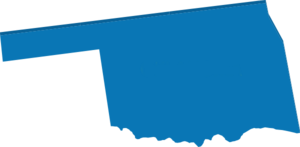 The Oklahoma Ethics Commission recently passed a series of rule changes pertaining to political contribution limits. Under the new rules, the dollar restrictions on contributions to state candidates would change from family limits to individual limits.
The Oklahoma Ethics Commission recently passed a series of rule changes pertaining to political contribution limits. Under the new rules, the dollar restrictions on contributions to state candidates would change from family limits to individual limits.
Each person would be allowed to give up to $2,600 to a candidate per election. The old rules prohibit families from donating more than $5,000 to a candidate in a political campaign.
Lee Slater, executive director of the Oklahoma Ethics Commission, believes the family contribution limit to be unconstitutional as it discriminates against a married person. The new rules, also changing individual contribution limits to political parties and PACs, will go into effect unless they are rejected, in whole, by the Legislature.
December 19, 2013 •
New Mexico Campaign Committee Limits Remain Enjoined
The 10th U.S. Circuit Court of Appeals ruled the lower court was right in issuing a preliminary injunction to keep the state from imposing limitations on certain contributions going to and from political parties and political action committees. The underlying […]
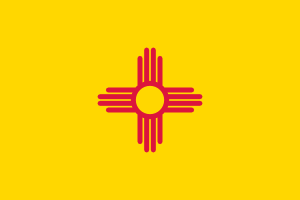 The 10th U.S. Circuit Court of Appeals ruled the lower court was right in issuing a preliminary injunction to keep the state from imposing limitations on certain contributions going to and from political parties and political action committees.
The 10th U.S. Circuit Court of Appeals ruled the lower court was right in issuing a preliminary injunction to keep the state from imposing limitations on certain contributions going to and from political parties and political action committees.
The underlying issue in the case is whether political committees not formally affiliated with a political party or candidate can receive unlimited contributions for independent expenditures.
The state Republican Party, GOP lawmakers, and others argue the state’s cap on such contributions is unconstitutional. The state appealed, arguing limiting such contributions is in New Mexico’s interest as it tries to prevent corruption and the appearance of corruption in campaign spending.
The case now moves back to the federal district court where a decision on the merits is expected to be in favor of those challenging the contribution limits.
October 23, 2013 •
Riverside County, CA Amends Campaign Disclosure Laws
Electronic filing expanded
 The Board of Supervisors has amended campaign finance regulations to require candidates and committees to electronically disclose all contributions of $1,000 or more, whether made during or outside the 90-day election cycle. Effective January 1, 2014, a candidate or political action committee must electronically post details of a contribution within 10 days if the amount meets or exceeds the $1,000 threshold outside an election cycle.
The Board of Supervisors has amended campaign finance regulations to require candidates and committees to electronically disclose all contributions of $1,000 or more, whether made during or outside the 90-day election cycle. Effective January 1, 2014, a candidate or political action committee must electronically post details of a contribution within 10 days if the amount meets or exceeds the $1,000 threshold outside an election cycle.
Currently, only contributions of $5,000 or more need to be posted electronically if made outside an election cycle. Contributions of $1,000 or more made during an election cycle will continue to be filed electronically within 24 hours.
The ordinance is expected to comply with Assembly Bill 2452, a new state law allowing local governing bodies to require electronic disclosure for contributions, so long as the locality complies with state regulations.
October 16, 2013 •
New AZ Contribution Limits Blocked
Constitutionality Challenged
 On October 15, 2013, an Arizona Court of Appeals directed the secretary of state not to enforce the law concerning contribution limits enacted in House Bill 2593, which had became effective on September 13, 2013.
On October 15, 2013, an Arizona Court of Appeals directed the secretary of state not to enforce the law concerning contribution limits enacted in House Bill 2593, which had became effective on September 13, 2013.
According to the Arizona Daily Star, the courts’ three-judge panel found the new law illegal without explaining the basis of its decision. The lawsuit challenging the constitutionality of the new law was brought by the Citizens Clean Elections Commission and others from the state.
Changes in the law include allowing individuals and noncertified political committees to give $2,000 to candidates running for legislative and statewide offices who do not participate in the state’s Citizens Clean Elections Act campaign financing system and removing the aggregate contribution limitations for individuals and some political committees.
State and Federal Communications, Inc. provides research and consulting services for government relations professionals on lobbying laws, procurement lobbying laws, political contribution laws in the United States and Canada. Learn more by visiting stateandfed.com.

